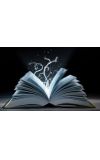
17 Jan 2014 03:25:49
From The Hobbit to the Hunger Games and Harry Potter, the list of books that the UK's children loved the most last year is almost entirely stuffed with fantasy novels.
Early findings from the biggest annual survey of UK children's reading habits were released today, showing a marked preference for dragons, magic and dystopia over novels set in the real world. According to the What Kids Are Reading report, the most-loved books of last year were JK Rowling's tales of a magical schoolboy, Harry Potter and the Order of the Phoenix and Harry Potter and the Goblet of Fire, which came in joint first place in the list, together with Suzanne Collins's Catching Fire, the second book in the dystopian Hunger Games trilogy.
Joint fourth place went to Christopher Paolini's tale of dragons and battles, Inheritance, and Rowling's Chamber of Secrets, with three more Harry Potter titles in joint sixth place, alongside JRR Tolkien's The Hobbit and The Fellowship of the Ring, Rick Riordan's The Lost Hero – starring the children of the Greek gods – and Veronica Roth's story of a dystopian future, Divergent.
The only non-fantasy title to make the list of most-loved books was John Green's The Fault in Our Stars, about a terminally-ill teenage cancer patient who falls in love.
Renaissance Learning, which publishes the report, said the results suggest that far from technology being the enemy of literacy, the fact that almost all of the books featuring on the list have been turned into films, apps and computer and online games shows it "may actually encourage children to try more challenging reads".
In years one to five, book choices were on average 2.4 years above children's chronological reading age, according to the report, which claims that "where children are exposed to highly motivational characters and plots from a wide range of media, they are encouraged to try more challenging books, which are often significantly above their chronological reading age".
"It is wonderful what reading highly-motivating books does for children. For the years one to five, children are reading favourite books at far above their chronological ability, but still maintaining a high rate of success," said the report's author Professor Keith Topping.
Renaissance Learning's managing director Dirk Foch said the report contained "good news for parents who are concerned about the dominance of technology in children's lives".
"In an increasingly multimedia world, these findings suggest that technology can support literacy, rather than acting as a distraction," said Foch. "Children are clearly drawn to the characters, concepts and authors they will have seen in games, films, TV ads and promotional tie-ups, and if this helps widen and challenge their reading choices, then so much the better."

